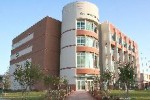Political foundations of ROTC building challenged

When USF administrators and ROTC personnel cut the ribbon of the CW Bill Young Hall Joint Military Leadership Center on Nov. 2, not everyone on campus was celebrating.
Because the ROTC follows the “don’t ask, don’t tell, don’t pursue” policy – a mandate employed by the military that bars disclosure of sexuality – students and faculty are concerned that the ROTC program on campus may discriminate against gay and lesbian students. The conflict also raises questions about USF’s own treatment of gay and lesbian students, specifically whether “don’t ask, don’t tell” reflects the ROTC’s position on gays.
Particularly controversial is the ROTC’s policy on students who come out while enrolled in the program.
If an ROTC cadet came out as gay or lesbian, he or she would be disenrolled and could be forced to pay back his or her scholarships, according to Lt. Col. James Botters of the USF Army ROTC.
Botters said students who are openly gay or lesbian can take ROTC classes and can minor in military science/leadership, but a student cannot be openly gay or lesbian and be considered a cadet or on active duty.
This means openly gay and lesbian students cannot receive all of the benefits that the ROTC offers to cadets, including scholarships.
Proponents of the “don’t ask, don’t tell” policy say a person can be gay or lesbian and in the armed forces, but can’t act on his or her sexuality.
“A person’s sexual orientation is considered a personal and private matter,” said Col. Bradford Ward of the USF Air Force ROTC (AFROTC). He said officers will not ask about a student’s sexuality before his or her entry into the AFROTC, and that sexuality “is not a bar to service entry or continued service unless manifested by homosexual conduct.”
Many on campus disagree with “don’t ask, don’t tell” at the national level and its implementation on campus in the ROTC program.
“ROTC’s policy is at odds with the University’s non-discrimination policy,” said David K. Johnson, an openly gay professor in USF’s history department and author of The Lavender Scare: The Cold War Persecution of Gays and Lesbians.
Ashlie Scott, a freshman in the pre-nursing program and Vice President of the P.R.I.D.E. Alliance, said “it is disheartening to learn that the campus which I live and learn on would so willingly reject me because of my sexuality.”
Carl Carlucci, the chief financial officer of the University, said USF spends a total of $149,670 on the ROTC, including salaries, benefits and expenses for its staffers.
USF implements an anti-discriminatory policy to protect gays and lesbians from unfair treatment and has an Office of Equal Opportunity and Diversity, but the University administration does not see a conflict with the rules of ROTC as they relate to USF’s anti-discriminatory policies, said University spokesman Ken Gullette.
“The University doesn’t really have anything to do with ROTC selection. We really have no influence over the rules of the military,” he said. “We have to respect the federal government’s right to regulate the military. They have many different regulations that they insist upon so that they can maintain what they believe is the integrity of the armed forces.”
USF, according to Gullette, does not employ policies similar to “don’t ask, don’t tell” when it comes to hiring. “I think that’s pretty clear that USF does not discriminate. We have an Office of Diversity and Equal Opportunity and we will defend the rights of all people as it pertains to the University, but this is the military,” Gullette said.
The passage of the law which enacted “don’t ask, don’t tell” in 1993 was met with massive protests from gay rights groups at universities across the country.
Some schools, including Harvard University in 1995, cut all funding for the ROTC, effectively barring it from campus.
Harvard’s position on the ROTC is made clear on its Web site. “Current federal policy of excluding known lesbian, gay, and bisexual individuals from admission to ROTC or of discharging them from service is inconsistent with Harvard’s values as stated in its policy on discrimination,” a statement explains.
In response to the banning of ROTC at various schools, the federal government passed the Solomon Amendment in 1996, which penalized private schools that prevent the ROTC or military recruiters from operating on their campuses. The amendment makes said schools ineligible for grants and contracts from Department of Defense, Department of Education and other federal departments and agencies.
John Sarao, interim executive director of the Joint Military Leadership Center, explained the rationale behind the ROTC’s position on gays and lesbians, saying homosexuality is not conducive to military work.
“There are a lot of situations when you are in close quarters,” he said. “Sexual orientation is a behavior, and that type of behavior effects military readiness.”
Sarao, like others within the ROTC, does not view the policy as discriminatory. Rather, he said it reflects society’s position on gays, not necessarily the military’s.
“It’s not a racial, religious or ethnic issue – it’s a behavior that society has said is unacceptable. Once society changes its mind, then the law will change,” Sarao said.






